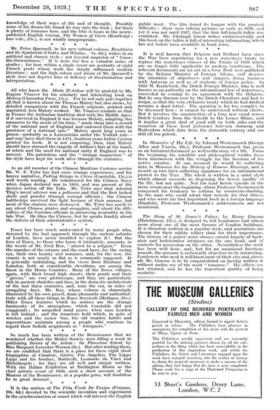All who know the Morte D'Arthur will be grateful to
Mr. Eugene Vinaver for his scholarly and interesting book on Malory (Clarendon Press, 15s.). For he not only puts together all that is known about Sir Thomas Malory but also shows, by detailed comparison with the French originals, printed and unprinted, how Malory worked. Mr. Vinaver reminds us that in France the Arthurian tradition died with the Middle Ages; if it survived in England it was because Malory, adapting the romances to the needs of his time, " made them into a record of the national past of England and endowed them with the greatness of a national epic." Malory spent long years in prison—probably as a Lancastrian under the Yorkist rule— and may have died there in 1471, fourteen years before Caxton printed his book. It is not surprising, then, that Malory should have stressed the tragedy of Arthur's fate at the hands of rebels and the need for national unity if England was to recover. His patriotism and the " strange magnetism " of his style have kept his work alive through the centuries.
* * *
































 Previous page
Previous page